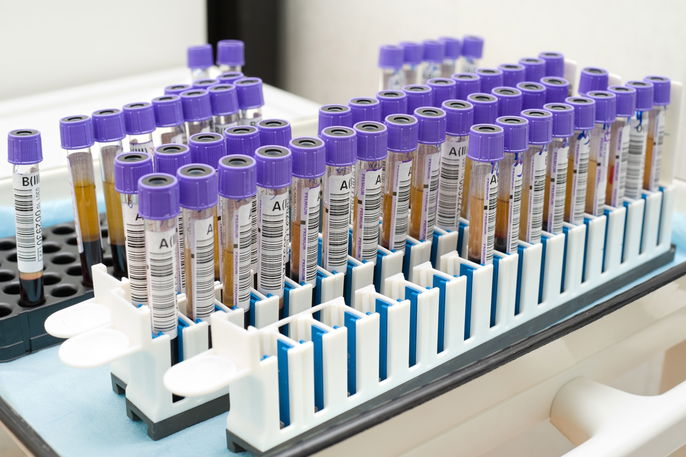What is it:
Lactate dehydrogenase (LDH) is an enzyme present in the cells that metabolizes sugar in the body. This enzyme is found in many organs and tissues, which makes it a non-specific test. This means that this test is not used to reach a specific diagnosis, and is usually interpreted in conjunction with other tests.
Abnormal LDH tests will usually prompt the doctor to look at LDH isoenzymes, to investigate for more specific changes:
- LDH-1, which is present in the heart, red blood cells and kidneys
- LDH-2, which is present in the heart (in low concentrations) and in white blood cells
- LDH-3, which is present in the lungs
- LDH-4, which is present in the placenta and pancreas
- LDH-5, which is found in the liver and skeletal muscles
LDL reference levels may range from lab to lab, however levels are usually normal at 120 to 246 UI/L in adults.

Testing uses
The lactate dehydrogenase test can be ordered as part of a routine screening exam, together with other tests. However, it can also be ordered to investigate for cardiac issues. In this context, it is usually ordered in conjunction with CK and troponin tests.
LDH may also be ordered to look at liver function, in which case it is usually ordered alongside other liver function tests, like ALT, AST and GGT.
COVID-19 is associated with biochemical and blood-related changes in the body. Therefore, the doctor may also opt to order LDH along with D-dimer, ferritin, and C-reactive protein to determine the severity of infection.
No preparation or fasting is required for this blood test, however some labs may require a minimum 4-hour fasting. Therefore, be sure to ask about any preparation instructions before completing the test.
High LDH levels
An increase in LDH is normally a sign of tissue or organ injury. Cells that become damaged will release LDH into the bloodstream, leading to elevated levels in the blood. Some health conditions that can cause high LDL include:
- Megaloblastic anemia
- Carcinoma
- Septic shock
- Heart attack
- Hemolytic anemia
- Leukemia
- Mononucleosis
- Hepatitis
- Obstructive jaundice
- Cirrhosis
LDH levels can also become elevated with COVID-19, which can also cause other abnormal lab results, like decreased lymphocytes and increased CRP and D-dimer. Some studies suggest that the higher the LDH, the more severe the illness.
Other factors, like intense physical activity, some medications and pregnancy, can also cause high LDH levels without any disease or cellular injury. This is especially true if LDH levels are high but all other blood tests are within normal findings.
Low LDH levels
Decreased lactate dehydrogenase in the blood is usually not a significant concern, and is not associated with any health conditions. In some cases, low LDH can be related to excessive vitamin C intake, in which case the doctor may recommend some diet changes.






























